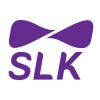Filter interviews by
Hira Technosoft Interview Questions and Answers
Hira Technosoft Interview Experiences
3 interviews found
Its was tuff to crack
Theoretical questions and programming
(1 Question)
- Q1. Good one to crack
Good to crack the gd
(1 Question)
- Q1. Finally i got a job
Interview Questionnaire
1 Question
- Q1. Mostly about lean
Interview Preparation Tips
Intern Interview Questions asked at other Companies
I applied via Walk-in and was interviewed in May 2021. There was 1 interview round.
Interview Preparation Tips
2nd round is essay writing
3 & 4 th round is HR Interview
Process Engineer Interview Questions asked at other Companies
Jobs at Hira Technosoft
Top trending discussions






Interview questions from similar companies

I was interviewed in Aug 2024.
Attended the TCS NQT, depending on how many advanced questions and the test cases you pass in coding section, you'll get assigned Ninja (3L) Digital (7L) or prime (9L)
(8 Questions)
- Q1. Code to get prime nos
- Q2. What do you know about cloud computing
- Q3. Self introduction
- Q4. Difference between cloud computing and computer networking
- Q5. If you know any os like linux
- Q6. Oops based questions, very basic if you're not from it or cse related fields but they might ask advanced questions if you're related to cs/it fields
- Q7. If you're okay Relocation
- Q8. Questions about your projects
Interview Preparation Tips
It depends on what type of questions the interviewer asks you though! Good luck, prepare well

I applied via Company Website and was interviewed in Nov 2024. There was 1 interview round.
(5 Questions)
- Q1. What is software
- Q2. What is hardware
- Q3. What are the Various Categories of Software?
- Q4. What are different SDLC Models Available?
- Q5. What is the Waterfall Method and What are its Use Cases?
Interview Preparation Tips
- Software Engineering
- Software Development

Finance Executive Interview Questions & Answers
Foxhog Ventures Corpposted on 19 Dec 2024
I applied via Approached by Company and was interviewed in Nov 2024. There were 2 interview rounds.
(2 Questions)
- Q1. Tell me about yourself.
- Ans.
I am a seasoned finance executive with over 10 years of experience in managing financial operations and driving business growth.
I have a strong background in financial analysis and reporting
I have successfully led budgeting and forecasting processes
I have experience in implementing cost-saving initiatives
I have a track record of improving financial performance and profitability
I am skilled in developing and implementin...
- Q2. What is your family background?
- Ans.
My family background is diverse and includes professionals in various fields.
My parents are both doctors, specializing in cardiology and pediatrics.
My siblings are in the fields of engineering and education.
We come from a close-knit family that values education and hard work.
(2 Questions)
- Q1. Can you provide information about your background and experiences?
- Ans.
I have over 10 years of experience in finance, including roles in budgeting, forecasting, and financial analysis.
10+ years of experience in finance
Strong background in budgeting and forecasting
Skilled in financial analysis
Previous roles include financial controller and finance manager
- Q2. What interests you about this position and the company?
- Ans.
I am interested in the challenging financial responsibilities and the company's reputation for innovation and growth.
Challenging financial responsibilities excite me
Company's reputation for innovation and growth is appealing
Opportunity to contribute to a successful company

Production Engineer Interview Questions & Answers
Capco Technologiesposted on 24 Dec 2024
(1 Question)
- Q1. Explain abt your product
- Ans.
Our product is a cutting-edge software solution designed to optimize production processes and improve efficiency.
Utilizes advanced algorithms to analyze production data and identify areas for improvement
Offers real-time monitoring and reporting capabilities for better decision-making
Integrates seamlessly with existing production systems for easy implementation
Has been successfully implemented in several manufacturing p...
(1 Question)
- Q1. Explain situational questions
- Ans.
Situational questions are hypothetical scenarios presented to candidates to assess their problem-solving skills and decision-making abilities.
Situational questions present candidates with a specific scenario and ask how they would respond or handle the situation.
Candidates are evaluated on their ability to analyze the situation, identify key issues, and propose a solution.
These questions help assess a candidate's criti...
(1 Question)
- Q1. Situational Questions

I was interviewed in Dec 2024.
(22 Questions)
- Q1. API Gateway implementation
- Ans.
API Gateway implementation is a centralized service that routes, manages, and secures API calls.
API Gateway acts as a single entry point for all API calls
It can handle authentication, rate limiting, caching, and request/response transformations
Examples include AWS API Gateway, Apigee, Kong
- Q2. Circuit breaker implementation
- Ans.
Circuit breaker is a design pattern used to prevent system overload by temporarily stopping requests to a failing service.
Circuit breaker monitors requests to a service and opens when the service fails repeatedly.
It helps prevent cascading failures and allows the system to gracefully degrade.
Once the circuit breaker is open, it can periodically check if the service has recovered before allowing requests again.
- Q3. What is deadlock? How to avoid it?
- Ans.
Deadlock is a situation in which two or more processes are unable to proceed because each is waiting for the other to release a resource.
Avoid circular wait by ensuring processes request resources in the same order.
Prevent hold and wait by requiring processes to request all needed resources at once.
Implement a timeout mechanism to break potential deadlocks.
Use resource allocation graphs to detect and prevent deadlocks.
...
- Q4. Explain equals() method
- Ans.
The equals() method is used to compare the contents of two objects for equality.
The equals() method is a method of the Object class in Java.
It is used to compare the contents of two objects for equality.
The default implementation of equals() in the Object class compares memory addresses, so it is often overridden in custom classes to compare content.
Example: String class overrides equals() method to compare the content
- Q5. How mongodb was integrated in your application?
- Ans.
MongoDB was integrated in the application by using the official Java driver and configuring connection settings.
Used the official MongoDB Java driver to interact with the database
Configured connection settings such as host, port, database name, and authentication credentials
Implemented CRUD operations using MongoDB Java driver methods
Utilized MongoDB aggregation framework for complex queries
- Q6. What is hibernate?
- Ans.
Hibernate is an open-source Java framework that simplifies the development of database interactions in Java applications.
Hibernate is an Object-Relational Mapping (ORM) tool that maps Java objects to database tables.
It provides a way to perform database operations using Java objects instead of writing SQL queries.
Hibernate handles the mapping of Java classes to database tables and vice versa, as well as the generation ...
- Q7. Runnable vs Callable interface
- Ans.
Runnable is a functional interface with a single run() method, while Callable is a functional interface with a single call() method.
Runnable is used for tasks that do not return a result, while Callable is used for tasks that return a result.
Callable can throw checked exceptions, while Runnable cannot.
Callable returns a Future object, which can be used to retrieve the result of the computation.
Example: Runnable - execu...
- Q8. Which type of data is returned by Callable interface?
- Ans.
The Callable interface in Java returns a Future object.
Callable interface returns a Future object which represents the result of a computation that may not be available yet.
The Future object can be used to retrieve the result of the computation, check if it is done, or cancel the computation.
Example: Callable<Integer> task = () -> { return 42; }
- Q9. HashMap internal working
- Q10. Concurrent HashMap internal working
- Q11. How to monitor health of your application?
- Ans.
Monitor application health using metrics, logs, alerts, and performance monitoring tools.
Use monitoring tools like Prometheus, Grafana, or New Relic to track key metrics such as CPU usage, memory usage, response times, and error rates.
Implement logging to record important events and errors in your application. Use tools like ELK stack (Elasticsearch, Logstash, Kibana) for log analysis.
Set up alerts to notify you of any...
- Q12. How to call an API in a Microservice architecture?
- Ans.
To call an API in a Microservice architecture, use HTTP requests or messaging protocols like gRPC.
Use HTTP requests to communicate between microservices
Implement RESTful APIs for easy integration
Leverage messaging protocols like gRPC for efficient communication
Consider using service discovery mechanisms for dynamic API calls
- Q13. Explain Profiles
- Ans.
Profiles in Java are configurations that define the capabilities of a Java platform.
Profiles allow developers to target specific types of devices or applications.
They help in reducing the size of the Java runtime environment by including only the necessary APIs.
Examples include Java SE Embedded Profile for embedded devices and Java SE Compact Profile for resource-constrained environments.
- Q14. What is OpenFeign, and how is it used in microservices architecture?
- Ans.
OpenFeign is a declarative web service client used to simplify the process of making HTTP requests in microservices architecture.
OpenFeign allows developers to define RESTful web services as interfaces and automatically generate the necessary implementation code.
It integrates seamlessly with Spring Cloud and other microservices frameworks to facilitate communication between services.
OpenFeign supports features like loa...
- Q15. What is the implementation process for service registry and discovery?
- Ans.
Service registry and discovery involves registering services and allowing clients to discover and connect to them.
Implement a service registry where services can register themselves with metadata
Use a service discovery mechanism for clients to find and connect to services
Implement health checks to ensure services are available and healthy
Use a load balancer to distribute traffic among multiple instances of a service
- Q16. What are Spring boot actuators?
- Ans.
Spring Boot Actuators are built-in tools that provide insight into the running application.
Actuators expose various endpoints to monitor and manage the application.
They can be used to check health, metrics, environment details, and more.
Examples include /actuator/health, /actuator/metrics, and /actuator/env.
- Q17. Synchronous vs Asynchronous communication
- Ans.
Synchronous communication is blocking, while asynchronous communication is non-blocking.
Synchronous communication waits for a response before continuing, while asynchronous communication does not wait.
Examples of synchronous communication include traditional function calls, while examples of asynchronous communication include callbacks and promises.
Synchronous communication can lead to performance issues if there are d...
- Q18. Explain Synchronized keyword
- Ans.
Synchronized keyword is used in Java to control access to shared resources by multiple threads.
Synchronized keyword can be applied to methods or code blocks to ensure only one thread can access the synchronized code at a time.
It prevents race conditions and ensures thread safety by creating a lock on the object or class.
Example: synchronized void myMethod() { // synchronized code block }
- Q19. What are the consequences of excessively using synchronized blocks and methods in Java?
- Ans.
Excessive use of synchronized blocks and methods in Java can lead to performance issues and potential deadlocks.
Decreased performance due to increased contention for locks
Potential deadlocks if multiple threads are waiting for each other to release locks
Increased complexity and difficulty in debugging and maintaining code
Use synchronized sparingly and consider alternatives like ConcurrentHashMap or Lock interface
- Q20. How can you determine the number of threads needed for your application?
- Ans.
The number of threads needed for an application can be determined based on factors like the type of tasks, hardware resources, and performance requirements.
Consider the type of tasks your application needs to perform - CPU-bound tasks may benefit from more threads, while I/O-bound tasks may not.
Take into account the hardware resources available - more threads may be beneficial on a multi-core processor compared to a si...
- Q21. Explain Executor framework
- Ans.
Executor framework is a framework in Java that provides a way to manage and execute tasks asynchronously.
Allows for managing thread execution in a more efficient way
Provides a way to decouple task submission from task execution
Supports various types of executors like ThreadPoolExecutor and ScheduledExecutorService
Helps in handling tasks concurrently and asynchronously
- Q22. Explain BlockingQueue
- Ans.
BlockingQueue is an interface in Java that represents a queue which supports operations that wait for the queue to become non-empty when retrieving an element and wait for space to become available in the queue when adding an element.
BlockingQueue is part of the java.util.concurrent package.
It is used for implementing producer-consumer scenarios where multiple threads are involved.
Methods like put() and take() are used...
(2 Questions)
- Q1. Why did you leave your previous company?
- Ans.
Seeking new challenges and opportunities for growth.
Desire for career advancement
Looking for new challenges
Seeking better work-life balance
Company restructuring or downsizing
Relocation to a new area
- Q2. Other basic questions asked regarding the relevant skills and technologies I have worked with.

Client Relationship Executive Interview Questions & Answers
Novel Officeposted on 6 Feb 2025
I was interviewed in Jan 2025.
(2 Questions)
- Q1. Introduction and few question on background.
- Q2. Job required based questions.
(2 Questions)
- Q1. Experience based questions
- Q2. Work confirmation based
All the IQ category questions were there.
Interview Preparation Tips

Associate Business Analyst Interview Questions & Answers
Capco Technologiesposted on 11 Oct 2024
I applied via Job Portal and was interviewed in Sep 2024. There were 2 interview rounds.
(2 Questions)
- Q1. Diff between ipo fpo
- Ans.
IPO stands for Initial Public Offering, where a company offers shares to the public for the first time. FPO stands for Follow-on Public Offering, where a company already listed on the stock exchange offers additional shares to the public.
IPO is the first time a company offers its shares to the public, while FPO is when a company already listed on the stock exchange offers additional shares.
IPO is used by companies to r...
- Q2. Diff between diff types of banking
- Ans.
Different types of banking include retail banking, commercial banking, investment banking, and central banking.
Retail banking focuses on individual customers and their personal financial needs, such as savings accounts and loans.
Commercial banking serves businesses and provides services like business loans and checking accounts.
Investment banking deals with helping companies raise capital through issuing stocks and bon...
(2 Questions)
- Q1. Do you understand capital market
- Ans.
Yes, I understand capital markets as the platforms where buyers and sellers trade financial securities.
Capital markets are where companies and governments raise long-term funds through debt or equity securities.
They include stock markets, bond markets, and other financial instruments.
Investors buy securities in the hope of earning a return on their investment.
Understanding market trends, regulations, and economic facto
- Q2. And the terms (ref below)
Interview Preparation Tips
Ensure you prepare the terms like Trade life cycle, hedging, ipo, fpo, bonds, dividend, etc..
Hira Technosoft Interview FAQs
Tell us how to improve this page.
Interview Questions for Popular Designations
Interview Questions from Similar Companies
Hira Technosoft Reviews and Ratings
based on 15 reviews
Rating in categories
|
Software Developer
8
salaries
| ₹4 L/yr - ₹9 L/yr |
|
HR Executive
5
salaries
| ₹2 L/yr - ₹3.6 L/yr |
|
Software Engineer
4
salaries
| ₹3.6 L/yr - ₹8.5 L/yr |
|
Administration Specialist
4
salaries
| ₹6.5 L/yr - ₹6.5 L/yr |
|
Devops Engineer
4
salaries
| ₹7 L/yr - ₹9 L/yr |

SLK Global Services

ffreedom app

Religare

Capco Technologies
- Home >
- Interviews >
- Hira Technosoft Interview Questions









